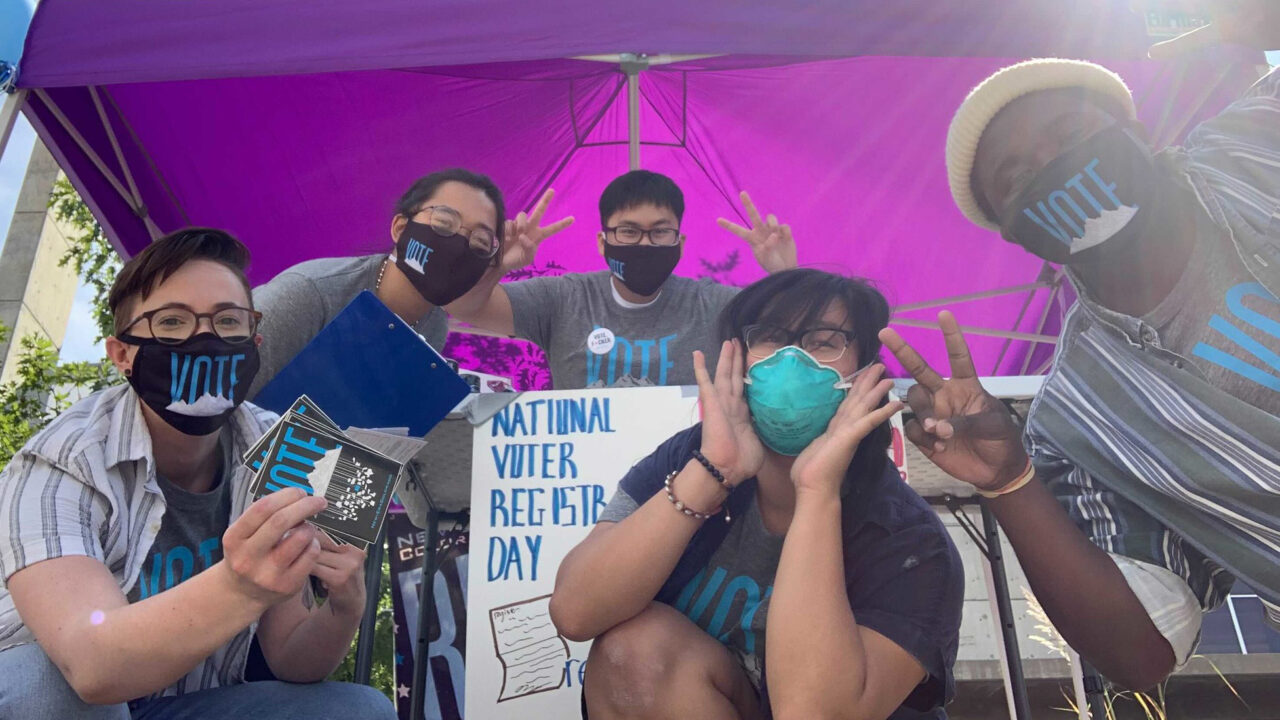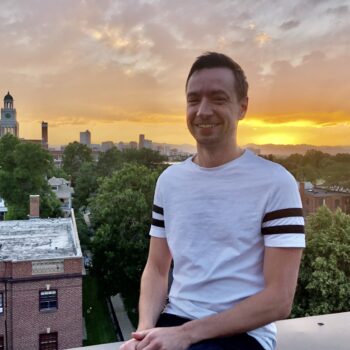In 2006, four recent University of Colorado Boulder graduates saw a clear problem with political decision-making in their state and country — young people were almost entirely left out of the conversation. To make matters worse, political organizers in Colorado were failing to reach or excite the huge, diverse generation of millenials who were just coming into adulthood. They founded New Era Colorado with the goal of making politics fun through irreverent peer-to-peer outreach.
Since then, New Era Colorado has seen incredible success registering and turning out hundreds of thousands of young people to vote. Our core organizing model has focused on registering young voters on college campuses, at festivals, and in their communities — and then turning them out in every election through texts, calls, and in-person conversations. We’ve registered over 250,000 young people across the state and achieved turnout rates as high as 86 percent for our registrants.
While we’re proud of the work we’ve done and the progress young Coloradans have made, we’re now reckoning with the gaps in this organizing model. If our core mission is to lift up and empower our generation, we need to center those most impacted by political decision making: Black, Indigneous, and other people of color (BIPOC) communities. These groups are the most excluded from politics — historically and currently — and our work hasn’t done anything to change that reality.
There are several reasons our current model fails at centering the most marginalized groups. The first problem is that college campuses — the focus of our in-person organizing — are predominantly white and economically-privileged, even at public universities like CU Boulder. While the high concentration of young people on campuses allows us to register many voters quickly, focusing our organizing there has made it more challenging for us to engage deeply with the communities that are the most excluded from political power.
One way we’re addressing this gap is through our high school registration and pre-registration programs (Colorado allows for pre-registration of 16 and 17 year olds). We launched this program in 2015 in order to reach more young people of color, as Colorado’s high schools are far more diverse than our four-year colleges. Our high school work has allowed us to reach new communities — we’ve registered nearly 33,000 people through this program alone and, on average, 40 percent of new registrants each year are people of color.
While this is exciting progress, we also know that to truly engage youth BIPOC people, we need to move beyond electoral engagement to focus on the issues affecting their communities. We developed an advocacy department in 2016 as a first step to move beyond electoral politics and have continued to expand this work year after year. We provide opportunities and training for young people to learn more about key legislation, deliver testimony at the Colorado Legislature, and make calls and send emails to their elected officials. As a result, we’ve successfully run policies on student debt, election access, and climate change, to name just a few. Our advocacy work builds on our electoral work — young people are more likely to turn out for elections when they can see how their vote made an impact on the issues they care about.
To make sure our work centers the most impacted communities, we also need to acknowledge the ways young people of color are already leading political movements and put more resources into partnering with Black-led movements in Colorado. In 2020, we released an equity statement and met with BIPOC-led partner organizations to propose ways we could best serve the racial justice movement as a white-led organization. One program that emerged was a collaboration with Soul 2 Soul Sisters — a local organization focused on Black Women’s healing and transformative justice — on their Let My People Vote program. We worked with Soul 2 Soul to educate, mobilize, and build a political home for young Black people in Colorado in order to create permanent power. Our teams registered young Black people across Colorado, recruited ambassadors for our relational organizing program, and developed a Black Womxn’s Voter Guide for mail, digital, and in-person distribution. Through this program, we turned out young Black folks in our registrant universe at 74 percent this election. We recognize this is one step in a larger journey of building trust and relationships with BIPOC-led organizations in our state.
We are also working to develop more young leaders of color within our organization. We suspended our unpaid internship program in 2019, recognizing the huge inequities that result from relying on unpaid labor, and we’re currently developing a new program to train young leaders of color through paid positions. Most importantly, the program will be designed to let young people of color lead campaigns and address issues most pressing in their communities: we’ll be rolling out that new program in early 2022. We are also creating more reciprocal relationships, starting by listening to the young Colorodans we want to center in our work. That’s why we launched our Youth Agenda Listening Tour to survey over a thousand young people across Colorado about the issues they care about, how they see their own political power, and the role they see government playing in their lives.
As we undergo a process of organizational transformation, we’re working to answer the question of what our organizing model needs to look like in order to authentically serve our communities. The responses we get from young people in our listening tour — especially those who are Black, Indigineous, and of color — will inform that answer. Regardless of the program model, we know that we must be community-driven, youth-centered, and anti-racist in both our approach and outcomes for organizing. Organizing to create deep, lasting transformation requires constant reflection and adaptation. We know that to meet this political moment, we must demand political power for those most disenfranchised and to follow the vision of BIPOC youth for how to bring about a more just and fair world to us all.

